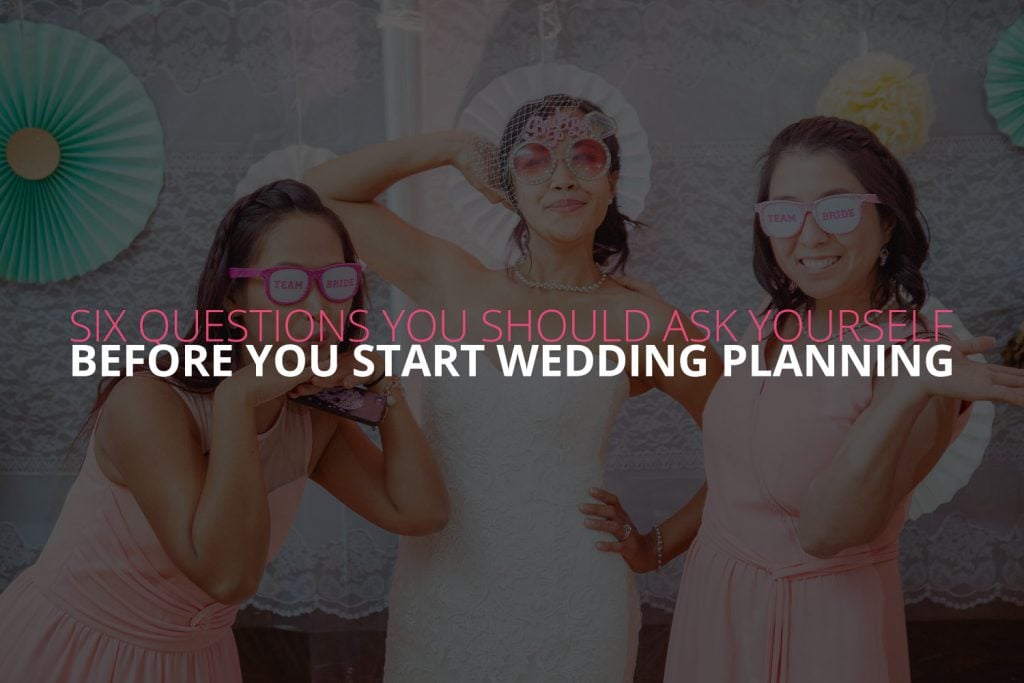When you set out to prepare for a wedding months or years in advance, it’s easy to get lost on a tangent of aesthetic ideas and thematic brainstorms; clicking through pages and pages of wedding dresses, and the endless scroll through photographers on Pinterest and Instagram.
It’s something like deciding to go on a trip and then immediately going to browse sexy new swim suits, instead of deciding whether to fly or to drive, and whether grandma will be invited.
Weddings can be a sticky process. From over-eager sales people, to unfamiliar services and pricing, to the social pressure that comes from all different sorts of relationships. I propose that before you do anything pragmatic (or maybe even fun) toward wedding planning, you set a kind of wedding mission-statement. Start everything with a clear declaration of your values as they relate to your wedding day.
Stating your values clearly, up front, is a good way to keep yourself grounded and on-track as things inevitably become more confusing and sometimes, unfortunately, overwhelming. Many people, when they have those moments, cave to what will solve their anxiety at that moment. That could mean paying too much or too little for something. That could mean excluding or including people that lay a big weight on your wedding day. That could mean making decisions which remind you, not of how wonderful the day was, but how difficult it was to plan for.
No, it’s better to start by wrestling with some tough questions, and making clear to yourself, what your values are. It will help give you a better internal compass for what the right decisions for you are.
There are myriad questions you could ask yourself, but here are six that I think should provoke thought and help you discover your values as they relate to your wedding day.
#1: How comfortable am I with chaos?
Chaos plays some role in every wedding, and it usually increases linearly with the total number of people involved; wedding party, family and guests. There are only three real ways to combat this pattern of increasing chaos: more time, more energy, or more money.
The thing is, a bit of chaos is not necessarily a bad thing. Have you ever taken a step back and looked at how you handle chaotic situations? When people run late for plans, or when plans change at the last second, or when unexpected guests show up—how does that make you feel? In these situations, some people go into spirals of anxiety while others are pretty much unaffected.
If you can identify as someone who really suffers in a chaotic environment, you’ll know that minimizing chaos is more important than some conventional priorities.
#2: How do I handle minor disappointment?
How does it feel inside when you get a cheese pizza instead of the pepperoni one you ordered? If you get to the movie theater and find the movie you wanted to see is sold out, does it ruin the rest of your night? Do you feel bummed out if you don’t find something under the Christmas tree you were really hoping for?
I’m not here to tell you how to think or feel, but I am advocating that you think about how you think, and think about how you feel. If you’re sensitive to the kind of disappointment I described above, it’s very easy to set yourself up for bad wedding day experiences. You’ll it’s important to plan a wedding day with enough diversity that none of those little disappointments stands a real chance at spoiling your mood, or your memory of the day.
#3: How much do I mind interpersonal politics?
Unless you plan to elope (an option we do not criticize in the least), or take clear preventative measures immediately, interpersonal politics is going to have some influence over your wedding day. Maybe a lot of it This is something couples rarely think about before it’s too late, but really ought to before they even announce their engagement.
You should think about and discuss how interpersonal politics in your family and workplace has made you feel in the past. For some people, family politics feels so toxic they avoid going home except for the holidays. Meanwhile, others thrive on it. If you think about it and know you’re someone whose really troubled when interpersonal politics gets messy, you know realize that stopping that ball once its rolling rarely happens without, sometimes significant, drama.
If you know you should avoid interpersonal politics, then consider a pact not to talk about anything wedding related with anyone except your fiancé. Make all of the decisions solely between the two of you, and only share details once plans are final.
#4: What impact have traditions had on me?
There are lots of traditions you’ll be invited to invoke during your wedding. Some will come in the form of requests (or demands) from parents and guardians. Some will come in the form of suggestions from friends, others from well-intentioned wedding vendors. You’ll have opportunity to carry on traditions, and to start your own. But before you blindly stumble into a tradition and make it part of a day you’ll remember forever, you should ask yourself what affect traditions have wrought in your past.
How did being part of traditions make you feel in the past? Even the recent past? Did it make you feel like you were part of something larger than yourself, or did it make you feel trapped inside someone else’s idea of meaning?
#5: What else do I have my heart set on later?
Are you thinking of this wedding day as the end? If so, you’re probably so consumed with wedding related things that you’re losing track of the bigger picture of your life, in which, having a wedding day was probably only an introductory piece.
You might have career goals, or family goals, travel goals. All of them might be long enough term that they can be placed aside to plan this thing. But, thanks to the magic of the wedding industry and our culture in general, not taking time to keep your larger goals in perspective can be put in jeopardy for the sake of practicalities and aesthetics of one particular evening.
Take some time to think about your wedding day in the context of your longer term life goals, and write it into your values to keep it from snowballing and setting your plans back, or ruining them completely.
#6: Who am I really doing this for?
All of the marketing material in the wedding industry tells you this day is all for you. Your friends are reminding you that it’s “your big day”. But, at the same time you’re inviting all these people to come and you’re implicitly asking for their approval. It’s not categorically clear who you’re wedding is for. For some it’s for God, for others it’s for family, for others it’s entirely for themselves. There’s no right or wrong here, except if you plan a wedding for your mother and expect it to be all about you. Or plan a wedding all for yourself and expect you’re mother not to object to anything.
I think it’s valuable to take stock of what is for you and what is for others. There’s nothing wrong with honoring wishes from your parents, siblings or friends, if you can identify that part of why you’re doing this is for really them.
You may find that there isn’t any overlap in who this is for. Perhaps it’s all for your parents, maybe it’s all for you. Stopping and figuring this out before you start down the road can lead to dramatically different plans, and perhaps something that is more authentically reflective of your values.

